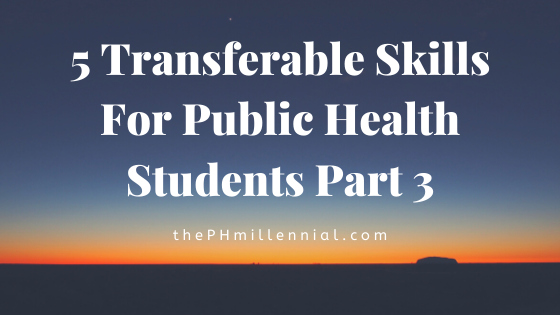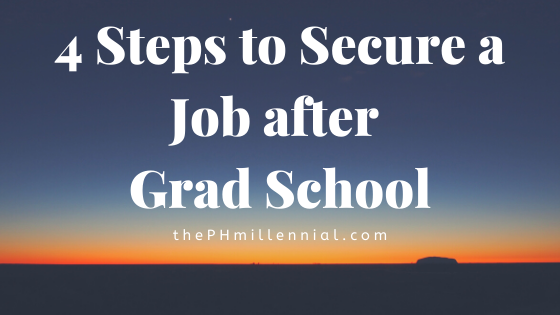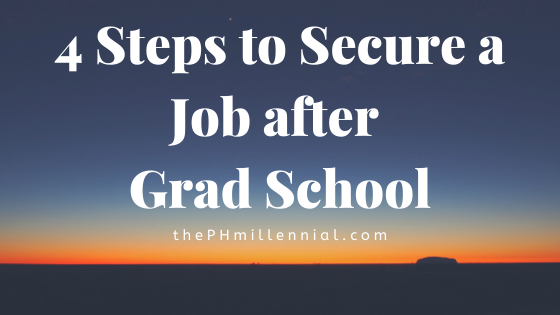Here are some transferable skills for public health students. Public health students (and professionals) should develop certain transferable skills that mesh with their personality.
Depending on your career path, some of these skills will stand out as more important than others. Always remember to try to identify experiences where you can highlight your skills for interviews or in just general conversation.
Be sure to check out the first two parts for this:
- 5 Transferable Skills For Public Health Students Part 1
- 5 Transferable Skills For Public Health Students Part 2
Support The Public Health Millennial on BuyMeACoffee
(Related: Transferable Skills For Public Health Students)
1. Active Listening
Being able to actively listen can set you apart in those nuanced conversations or situations. Did you really understand the train of thought or were you sitting there dreaming?
Be sure to practice active listening and being mindful of verbal and non-verbal communication. The better you are able to listen and understand what’s going on or be able to ask questions on what’s going on, you’ll get ahead. In our present world, far too few of us are not being mindful during our meetings – this is especially true as we have all been doing very “dis-engaging” virtual meetings. But actually being able to sit there and be present in those meetings so you can actively listen and contribute the most.
A way I try to be active listening is simply by taking notes. Try to take notes and not be actively listening! Write down big points and also jot down questions. Are you able to recall what happened 2 weeks ago in that meeting? I bet your notes do!
A good way to practice being an active listener is by being regularly present in conversations. Engage with what the other person is saying and feeling. Learn to read the situation. Communicate more effectively as a result.
Here are some resources for Active Listening:
- 7 Targeted Active Listening Games, Exercises and Activities for Adults
- Active Listening: What does it look and feel like? | Thomas Neal | TEDxHolyokeCC
- How to actively listen to others | Scott Pierce | TEDxBirmingham
- 5 Ways To Listen Better | Julian Treasure (TED)
(Related: 5 Transferable Skills For Public Health Part 2)

2. Relationship Building
Relationship building is huge not only in public health, but just generally in life. As they say, your network is your net worth – of course with some nuance.
Be an active relationship builder. Relationships are important for your work both personal and professional. Whether you are working on a project or just chatting with someone. You never know how beneficial building that relationship will be until you need it. Cultivate relationships by doing small actions. Give them a call, send a text, learn about their family and build that relationship.
When you are able to add some informal with the formal, you will slowly build those relationships.
Here a some resources for Relationship Building:
- Building Good Work Relationships on Mindtools
- Building Connections: How to become a relationship ninja | Rosan Auyeung-Chen | TEDxSFU
- How to build (and rebuild) trust | Frances Frei
- Business Networking: How to build professional relationships
3. Extracting Important Information
As a public health professional, you’ll be in a world of information – what is important is to be able to discern the worthwhile information from the mundane.
You can also think of this as analytical reasoning or thinking. You’ll have to be able to break down situations, read data, and learn how to problem solve. There will be two people in the work: Those that Do and Those that Think. You can be a bit of both, but the working world is starting to demand more of the thinkers as we need more innovative solutions to the world we are in. Being able to develop this skill and learning how to communicate your insights.
Cultivating the skill to extract important information in all situations is a skill that can set you apart. Can you look at a research paper and know some of the important things after 5 minutes? Do you understand the big takeaways from the policy just passed and how it will affect your work?
We work in a world of systems and the better you are able to understand the system and their connections, the better you will be in your job and in understanding the larger world around us.
Here are some resources for Extracting Important Information:
- Think fast, talk smart: communication techniques (Stanford Graduate School of Business)
- Analytical Thinking Techniques
- 3 ways to master analytical thinking without breaking a sweat

4. Innovative Thinking
Being able to take the best of evidenced-based work and real world experience and creating new solutions to problems is the way of the future.
We can see all around us that things aren’t working out how we would like it. We need innovation in all sectors of work now. New ways to think about and approach situations. How can we expect things to get better if we aren’t providing the solutions to the problems at hand? Learning is one thing, but creatively thinking of solutions alongside community is how we can adapt systems, programs, understanding between and within communities.
Think outside the box when you choose the presentations you do during graduate school. Explore convoluted but interesting topics. Really use this time to learn about complex issues and think of innovative solutions. This will help you as you transition to the work force and we definitely know we need younger influences in all workforces – we think differently. Practice to think beyond what you read of as solutions, say to yourself “yes, but what if…?”
Innovation is the here, just look at how our world has quickly transitioned and continues to transition to COVID-19. We need innovation now in public health too. Use all opportunities to speak of or think of new ideas and ways to do things.
Here are some resources for Innovative Thinking:
- Design Thinking for Innovation on Coursera
- The Design Thinking Process
- Creative thinking – how to get out of the box and generate ideas: Giovanni Corazza at TEDxRoma
- Lateral thinking: How to workshop innovative ideas | Dan Seewald | Big Think
5. Business Strategy
Being able to understand business strategy and what drives different businesses can also be beneficial in your work. Remember the government, non-profits, for profits and everything at the end of the day are businesses.
Being able to know the drivers of organizations and how to leverage your work around them is key for effective collaboration. I also believe understanding how to Strategically Think is important. You should be able to understand how to strategically approach situations and learn to work strategically. You can’t just think about today, think about the effects after a year, 5 years, 10 years – think deeper and act accordingly.
Being a strategic thinker is part of being able to actively listen while also thinking a lot deeper than the usual person. Being able to think at a high level as well as on the ground will help you how to better strategize in any work you do. Or build the relationships that you can leverage for information for work on the ground.
Here are some resources for Business Strategy:
- Strategic Planning and Execution on Coursera
- The steps of the strategic planning process in under 15 minutes
- How to be a more strategic thinker
- How to be a strategic motherfucker – The 7 Pillars of Strategic Thinking

Summary
Here I outlined skills that public health students can use and develop to be able to help their career acumen.
- Active Listening
- Relationship Building
- Extracting Important Information
- Outreach
- Business Strategy
Check out the first and second part of this series here: Part 1 & Part 2.
The 10 skills i’ve covered thus far are:
- Networking
- Needs Assessment
- Data Management & Analysis
- Report Writing
- Collaboration
- Qualitative Skills
- Presentation Skills
- Grant Research and Writing
- Critical Thinking
- Project Management
Which one or some of these skills have been helpful to you?



